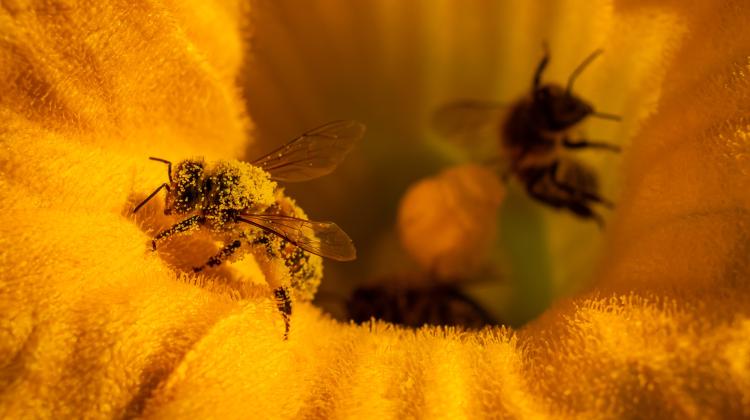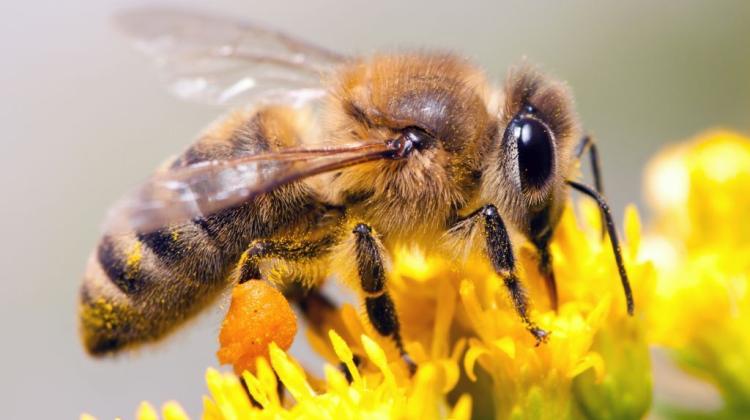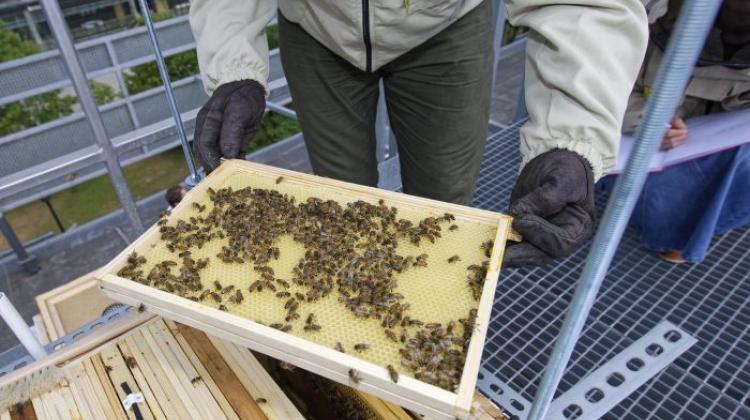Rebel bees guilty of dissent in the hive

Every now and then, rebel workers hatch in the bee family, that invest in their own development rather than take care of other bees. But they are not a threat for the whole family. They disorganize the family’s life for a month, and when they die, everything goes back to normal.
Temporary turbulence in the bee family is caused by swarming, when the mother and part of the workers leave the hive to start a new family in another place. "Part of the workers remain in the hive, as do eggs, larvae and pupae. Some of them will develop into selfish individuals" - described Karolina Kuszewska from the Institute of Environmental Sciences, Jagiellonian University.
When after swarming the mother is not present in the hive, hatched larvae sense her absence probably due to pheromones, and develop into more selfish individuals. Adult workers that remain in the hive after swarming can no longer change anything in their life strategy. They are already determined and developed. But individuals that are about to hatch can rebuild their bodies.
"They have better developed ovaries, and glands for the production of food for the larvae and the mother are less well developed. They want to invest more in their own reproduction and their own children, rather than caring for other individuals in the colony. We call them rebel workers" - explained Kuszewska, who studied the life of rebel bees in the UJ Complex Behavioural Ecology Team headed by Prof. Michał Woyciechowski.
Workers after swarming are not left to themselves in the hive. New mother already develops, who for the other bees is basically mother-sister. That is why workers are beginning to rebel. Before the mother’s departure they take care of their sisters and brothers, and they are obedient. However, after swarming, when a new mother develops, they will have to take care of her offspring, and - to translate it into the human world - their nephews and nieces. They are less related with them than with their sisters and brothers, and this means that less of their genes will pass to the next generation.
Fortunately, the family in which they live is not doomed to extinction. "If it were, we would no longer have bees. Swarming is a natural occurrence, which was happening long before humans domesticated bees" - the researcher told PAP. But when rebel bees appear, the bee family very disorganized and divided. "Not only is the family weakened after swarming, the rebels prolong this state" - added Kuszewska.
Mutiny in the hive ends with the death of the rebels, after nearly a month. When they are already adult bees, more larvae appear in the hive, which again are obedient workers. "This cycle is repeated from time to time, because swarming occurs once a year or two" - said the researcher.
Researchers from the Jagiellonian University were the first to demonstrate that the larvae can read the signal of the mother’s absence and rebuild their bodies. It is not known whether a similar phenomenon also occurs in other species that live in large families, for example ants.
Research on rebel bees is one of the projects described in Projektor Jagielloński 2, available at: www.projektor.uj.edu.pl
PAP - Science and Scholarship in Poland, Ewelina Krajczyńska
ekr/ agt/ mrt/
tr. RL
Przed dodaniem komentarza prosimy o zapoznanie z Regulaminem forum serwisu Nauka w Polsce.

















